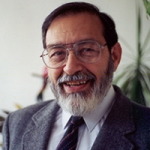About the Book
A Year with the Sages uniquely relates the Sages’ understanding of each Torah portion to everyday life. The importance of these teachings cannot be overstated. The Sages, who lived during the period from the fifth century BCE to the fifth century CE, considered themselves to have inherited the oral teachings God transmitted to Moses, along with the mandate to interpret them to each subsequent generation. Just as the Torah and the entire Hebrew Bible are the foundations of Judaism, the Sages’ teachings form the structures of Jewish belief and practice built on that foundation. Many of these teachings revolve around core concepts such as God’s justice, God’s love, Torah, Israel, humility, honesty, loving-kindness, reverence, prayer, and repentance.
You are invited to spend a year with the inspiring ideas of the Sages through their reflections on the fifty-four weekly Torah portions and the eleven Jewish holidays. Quoting from the week’s Torah portion, Rabbi Reuven Hammer presents a Torah commentary, selections from the Sages that chronicle their process of interpreting the text, a commentary that elucidates these concepts and their consequences, and a personal reflection that illumines the Sages’ enduring wisdom for our era.
“Reuven Hammer examines a portion of each week’s Torah and Holiday readings in a unique tri-partite fashion—Explanation, Exposition of Sages, and Personal Reflections—offering us his in-depth knowledge of Torah, erudite mastery of Rabbinic sources, and enlightening reflections, respectively. The end result—A Year With the Sages—is a truly valuable contribution to us all.”—Shalom M. Paul, professor emeritus of Bible studies, Hebrew University in Jerusalem
“A Year with the Sages offers a learned, relevant and eloquent reaction to each among the entire year of weekly Torah portions. These essays are insightful in preparing for Bible Study classes, for sermonic presentations, and for an on-going rhythm of engagement with sacred texts. Rabbi Hammer’s breadth of knowledge combines scholarship with current-day life wisdom. This is a worthy addition to both personal and communal Jewish libraries.”—Rabbi Alan Silverstein, president of Mercaz Olami, past president of the International Rabbinical Assembly and of Masorti Olami
“Hammer sheds insightful light on the meaning of Torah for both the rabbinic period and our time.”—Rabbi Steven Reuben, senior rabbi emeritus of Kehillat Israel Reconstructionist Congregation in Pacific Palisades, California
“Hammer has chosen his rabbinic texts wisely; his comments are both scholarly and contemporary, and offer us meaningful life lessons.”—Rabbi Vernon Kurtz, North Suburban Synagogue Beth El in Highland Park, Illinois, and author of Encountering Torah: Reflections on the Weekly Portion
“Any publication by Rabbi Reuven Hammer is cause for celebration. His wisdom, warmth, and depth are treasures. A Year With the Sages is exceptional—the contemporary sage, Rabbi Hammer, guides us in walking the path of the ancient sages.”—Rabbi Bradley Shavit Artson, dean of the Ziegler School of Rabbinic Studies, American Jewish University


